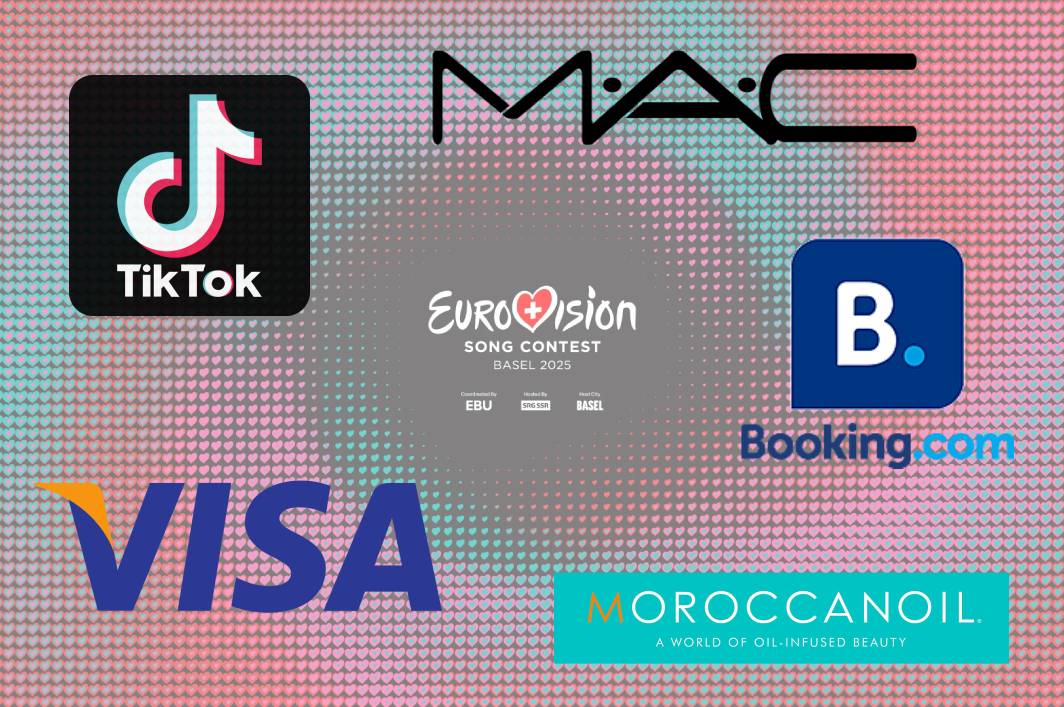
The Eurovision Song Contest isn’t just a celebration of music—it’s also a magnet for major brands. Over the decades, global sponsors have used Eurovision’s massive audience to amplify their reach, tell bold stories, and tap into the cultural zeitgeist. From fashion to tech, these brands don’t just sponsor—they perform. Each year, their presence becomes more creative, immersive, and influential.

Famous Brand Partnerships at Eurovision:
- Moroccanoil: Official hair partner since 2020
- Visa: Supporting digital payments and fan zones
- TikTok: Exclusive media partner for backstage content
- MAC Cosmetics: Styling artists and delegations
- Booking.com: Travel partner offering Eurovision-themed stays
Brand Power Behind the Scenes
With over 160 million viewers annually, Eurovision offers one of the most valuable media stages in the world. Brands like Pepsi, Visa, and Moroccanoil have all used this exposure to build campaigns that go far beyond traditional advertising. Moroccanoil, for instance, became Eurovision’s official hair care partner in 2020 and has since run styling lounges, influencer activations, and exclusive tutorials tied to the contest.
Visa, on the other hand, leveraged its partnership to highlight secure digital payments in host cities, sponsoring fan zones and mobile payment setups during live shows. These integrations allow sponsors to engage directly with audiences—not just through screens, but through physical and interactive experiences that stay with fans well beyond the final note.

Star Collaborations and Global Reach
Brand sponsorships also open the door to partnerships with the artists themselves. In past years, H&M has styled contestants for media appearances, while MAC Cosmetics provided on-site makeup teams for delegations and press events. These connections give brands a cultural edge—blending performance with identity, and turning artists into ambassadors.
Some brands have embraced digital innovation to heighten visibility. In 2023, TikTok became an official entertainment partner, offering exclusive behind-the-scenes content and fan challenges that generated millions of views. This kind of synergy between platform and performance keeps Eurovision fresh and relevant, especially among younger audiences.
Sponsorship also allows brands to align with the values of Eurovision—diversity, inclusion, and unity. Many companies use the contest to showcase support for LGBTQ+ communities and multicultural representation. For example, Coca-Cola launched a campaign centered around “Love is Love” during Eurovision 2022, featuring rainbow-colored packaging and short films highlighting stories of queer artists across Europe. These campaigns don’t just reflect brand values—they resonate deeply with Eurovision’s loyal and diverse fanbase, reinforcing emotional connection while broadening commercial reach.
Over time, the role of sponsors has expanded beyond passive presence. Brands now help shape fan experiences, drive social media narratives, and even influence how the contest is remembered year after year. Eurovision’s world stage has become a canvas for bold branding—and the brands, in turn, amplify the magic.